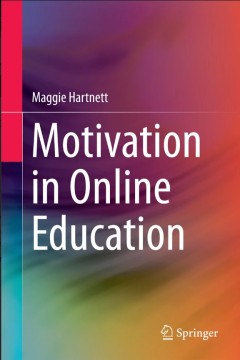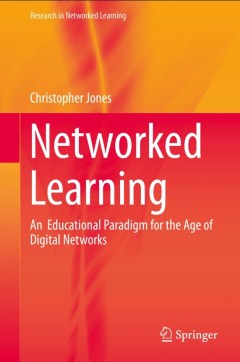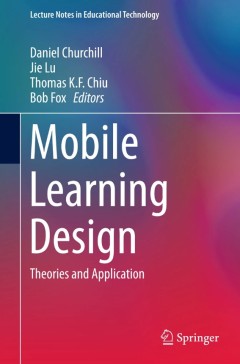Filter by

Motivation in Online Education
This work explores and explicates learner motivation in online learning environments. More specifically, it uses a case-study approach to examine undergraduate students’ motivation within two formal and separate online learning contexts. In doing so, it recognizes the mutually constitutive relationship of the learner and the learning environment in relation to motivation. This is distinctive …
- Edition
- 1
- ISBN/ISSN
- 978-981-10-0698-2
- Collation
- XXIII, 134
- Series Title
- -
- Call Number
- -

Networked Learning
This book posits the idea that networked learning is the one new paradigm in learning theory that has resulted from the introduction of digital and networked technologies. It sets out, in a single volume, a critical review of the main ideas and then articulates the case for adopting a networked learning perspective in a variety of educational settings. This book fills a gap in the literature on…
- Edition
- 1
- ISBN/ISSN
- 978-3-319-01933-8
- Collation
- X, 249
- Series Title
- Research in Networked Learning
- Call Number
- -

Emerging Technologies for STEAM Education Full STEAM Ahead
This theory-to-practice guide offers leading-edge ideas for wide-scale curriculum reform in sciences, technology, engineering, the arts, and mathematics--the STEAM subjects. Chapters emphasize the critical importance of current and emerging digital technologies in bringing STEM education up to speed and implementing changes to curricula at the classroom level. Of particular interest are the div…
- Edition
- -
- ISBN/ISSN
- 978-3-319-02573-5
- Collation
- 19 b/w illustrations, 17 illustrations in colour
- Series Title
- -
- Call Number
- -

Mobile Learning Design
This book focuses on mobile learning design from both theoretical and practical perspectives. It introduces and discusses how mobile learning can be effectively integrated into curricula, highlighting the design of four key components of learning-centric pedagogy: Resource, Activity, Support and Evaluation in the context of mobile learning. It also investigates the learning theories underpinnin…
- Edition
- 1
- ISBN/ISSN
- 978-981-10-0025-6
- Collation
- XVIII, 431
- Series Title
- Lecture Notes in Educational Technology
- Call Number
- -

Embedded Engineering Education
This book focuses on the outcome of the European research project “FP7-ICT-2011-8 / 317882: Embedded Engineering Learning Platform” E2LP. Additionally, some experiences and researches outside this project have been included. This book provides information about the achieved results of the E2LP project as well as some broader views about the embedded engineering education. It captures projec…
- Edition
- 1
- ISBN/ISSN
- 978-3-319-27540-6
- Collation
- 66 b/w illustrations, 12 illustrations in colour
- Series Title
- -
- Call Number
- -
 Computer Science, Information & General Works
Computer Science, Information & General Works  Philosophy & Psychology
Philosophy & Psychology  Religion
Religion  Social Sciences
Social Sciences  Language
Language  Pure Science
Pure Science  Applied Sciences
Applied Sciences  Art & Recreation
Art & Recreation  Literature
Literature  History & Geography
History & Geography